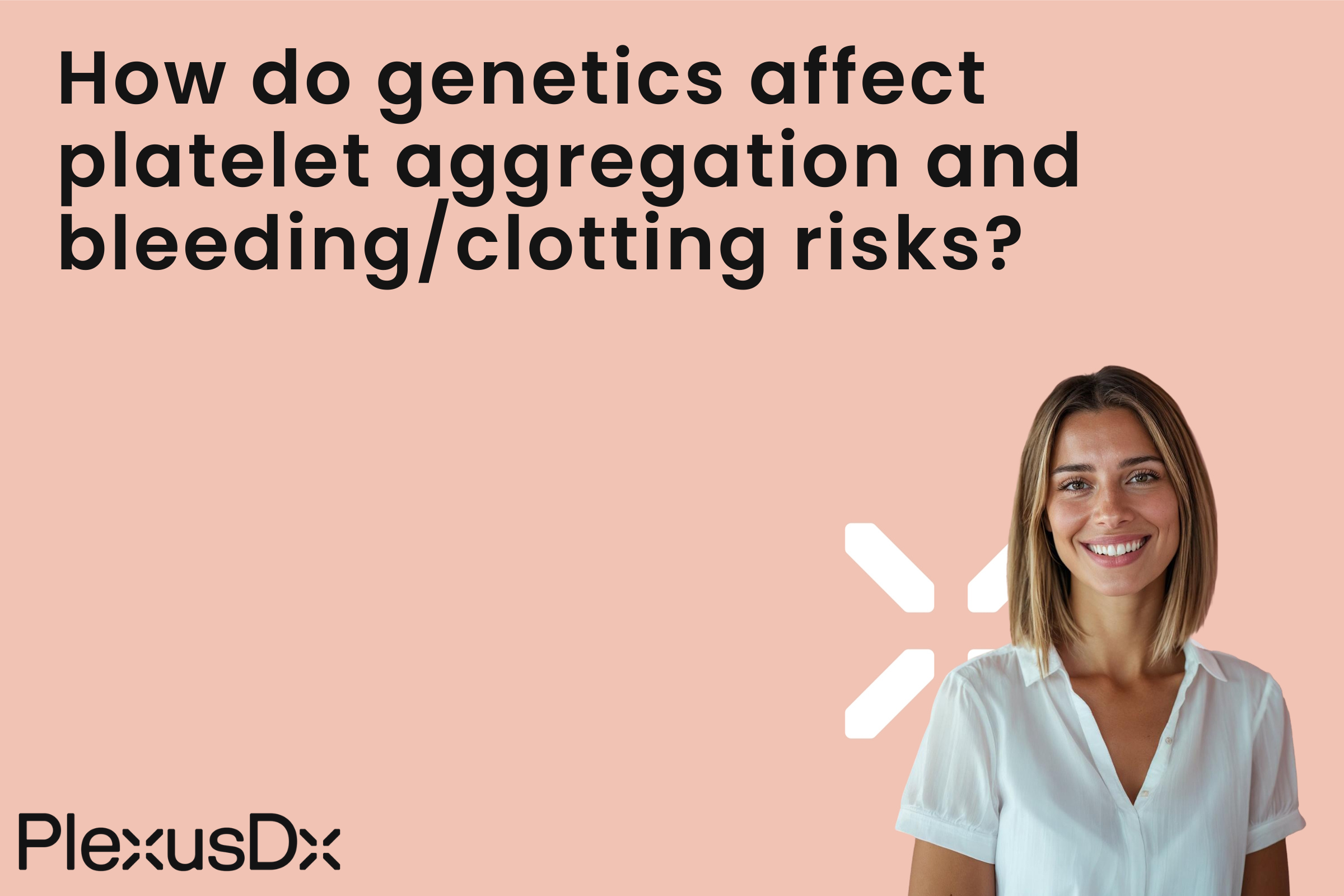Platelet Aggregation
Many people show curiosity about why certain individuals experience more frequent blood clots or excessive bleeding. Their genetic composition may hold the key to understanding these traits. The aggregation of platelets through clumping in the bloodstream serves as an essential mechanism for both wound healing and the prevention of excessive blood loss. If platelet aggregation becomes abnormal it can trigger severe medical conditions including heart attacks strokes and deep vein thrombosis.
Genetic Trait
Platelet aggregation serves as a biomarker that measures the extent of platelet clumping which influences both bleeding and clotting risks in individuals. A wide range of variability exists in this trait among people and it holds important consequences for personal health. An examination of your genetic predisposition toward platelet aggregation offers essential information about your health status and potential medical risks. Genetic factors account for approximately 45-60% of the observed variability in platelet aggregation according to scientific studies. Scientists have found multiple gene variants that affect platelet activity and their tendency to aggregate. Research into how genes affect platelet aggregation shows that genetics play an important role in how people react to antiplatelet medication. Platelet aggregation can be affected by medications as well as lifestyle factors like diet and smoking and medical conditions including surgery and trauma together with hormonal fluctuations. Antiplatelet medications such as aspirin and clopidogrel work by preventing platelet aggregation whereas particular medications and lifestyle choices together with diet can influence platelet activity by causing either an increase or decrease. Anyone experiencing unusual bleeding or clotting issues should seek a full medical evaluation which includes tests to assess platelet function. A healthcare professional or hematologist can offer management strategies and specific insights that align with your personal platelet function and aggregation patterns. Use these effective strategies to control platelet aggregation and diminish possible risks. Seek professional medical advice for a complete assessment when you experience issues with platelet function.
- Eating a balanced diet with ample omega-3 fatty acids can help lower platelet aggregation.
- Maintain healthy platelet activity by stopping smoking and reducing both alcohol and caffeine intake.
- Reduce stress by practicing relaxation methods and making lifestyle adjustments.
- Learn how medical conditions along with surgeries and hormonal changes impact platelet aggregation.
Grasping the extent to which genetics affect platelet aggregation enables better health management and lowers the chances of developing blood clots and bleeding disorders. PlexusDx's Precision Health & Wellness tests available through PlexusDx.com as well as Amazon and Walmart help you understand your genetic predispositions to make better health choices. Work with healthcare professionals to create personalized strategies for optimal health and take proactive steps toward managing your platelet aggregation issues. Understanding your genetic foundation guides your health outcomes while empowering you to manage your health and minimize platelet aggregation risks.

Share:
What health conditions are linked to IL1B gene variants and how can individuals manage them?
Effects of GCKR variants on blood sugar, insulin & role of genetic testing in nutrition plans?